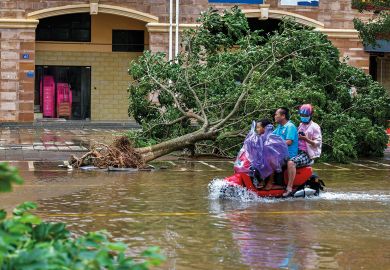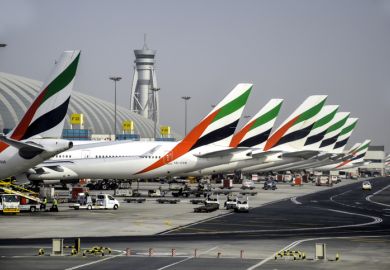Australia’s success in containing Covid-19 and a potential reboot of economic activity could limit the damage that unfavourable federal government policies inflict on international student flows, commentators say.
Sydney tertiary education consultant Claire Field said Australia’s rapid efforts to limit the outbreak augured well for the industry. “My concern was, why would parents and governments trust us to educate their kids in the future if we weren’t taking care of them in a crisis?
“But if we start to open up our economy and people can go back to some kind of work, perhaps we’re not going to be as disadvantaged as we otherwise would have been.”
Although overseas students risk destitution after the pandemic erased the jobs many needed for survival, the Australian government has denied them eligibility to some A$200 billion (£104 billion) in job subsidy and income-support payments available to citizens.
And while foreign students have been allowed to work extra hours in crisis roles such as nursing, aged care and stacking supermarket shelves, permission has been revoked once locals were able to meet the need. The prime minister, Scott Morrison, exacerbated perceptions of exploitation by insisting that students unable to support themselves should simply go home.
Inflexible and unclear visa policies and slow or non-existent visa processing have compounded the damage.
However, almost all universities and state and territory governments – with the conspicuous exception of New South Wales – have developed hardship packages totalling hundreds of millions of dollars.
Overseas students can also benefit indirectly from A$200 million in federal funding to help charities and community organisations provide emergency and food relief. Federal trade agency Austrade is working with digital education platform FutureLearn to provide free online courses for foreigners.
Ms Field said the state assistance packages would soften the reputational blow inflicted by Canberra’s hands-off policies. She said an early opening of Australia’s borders, in particular, would help to revive the industry: “We might not come out of this in such bad shape as I had worried.”
Steven Marshall, the premier of South Australia, which has one of the lowest coronavirus caseloads of any Australian state, has flagged a possible early opening of Australia’s borders for international students. He said his government was considering a pilot scheme in which students spent their initial fortnight isolated under supervised quarantine.
New Zealand might also allow overseas students back into the country before the borders open more broadly, according to Radio New Zealand, after immigration department figures revealed that the number of international students had plunged by 15 per cent in just six weeks.
Chris Hipkins, the education minister, said universities would need to be able to produce a “concrete proposal” for a “hard” quarantine model. “We couldn’t be putting them in a hall of residence and saying: ‘Don’t go anywhere.’ We’d need to know that it was an enforceable model.”
A recent survey by marketing analysts IDP Connect found that while internationally mobile students rated New Zealand highly for welfare, Australia was not far behind.
It ranked ahead of Britain, where international students can attract subsidies of up to £625 a week through the UK’s Job Retention Scheme, suggesting that – in students’ minds – the low risk of infection in Australia trumps the more generous welfare arrangements available elsewhere.
Register to continue
Why register?
- Registration is free and only takes a moment
- Once registered, you can read 3 articles a month
- Sign up for our newsletter
Subscribe
Or subscribe for unlimited access to:
- Unlimited access to news, views, insights & reviews
- Digital editions
- Digital access to THE’s university and college rankings analysis
Already registered or a current subscriber? Login








